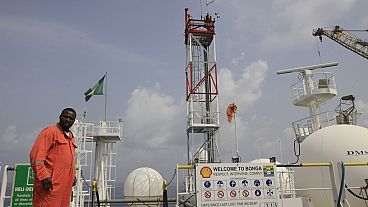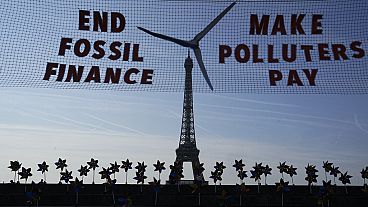FRANKFURT (Reuters) - Germany's blue-chip companies could face billions of euros in costs to cut carbon emissions under a climate protection plan due to be unveiled by the government on Friday, according to a study by asset manager Union Investment.
"According to our research, almost every one of the (30) DAX companies will be facing big challenges, even under low CO2 price scenarios," said Henrik Pontzen, head of environmental, social and corporate governance at Frankfurt-based Union Investment's portfolio management business.
Germany, which is responsible for just over 2% of the world's greenhouse gases emissions, mainly aims to cap carbon emissions from buildings and transport.
Its utility sector has already made substantial reductions, forced by mandatory carbon permit trading (EU-ETS) in Europe that incentivises carbon efficiency.
But the country is on still track to miss targets to cut greenhouse gases emissions, of which CO2 is the main one, by 55% in 2030 from 1990 levels, having achieved less than 30% so far.
Union Investment said that putting a carbon price on areas not captured by the ETS could cost the DAX group of companies 5.2 billion euros (4.58 billion pounds) a year, an estimate it based on a price of 30 euros a tonne of CO2 equivalent.
This sum would be equivalent to 3.7% of the cumulative operating profit of the combined DAX group in 2018, it said.
It said possibly heavily affected companies included chemicals firms BASF <BASFn.DE>, Covestro <1COV.DE> and Linde; steelmaker ThyssenKrupp <TKAG.DE>; automotive companies BMW <BMWG.DE>, Continental <CONG.DE>, Daimler <DAIGn.DE>, and Volkswagen <VOWG_p.DE>; and building materials firm HeidelbergCement <HEIG.DE>.
Berlin appears likely to set up a separate CO2 trading system for lagging sectors before integrating them into the ETS, while there are also proposals to impose CO2 taxes on them.
The C02 contract for December expiry on the ETS, which covers half of all polluting industries in the EU, is currently trading at 25.5 euros a tonne <CFI2Zc1>.
Pontzen said financial services and telecoms companies such as Allianz <ALVG.DE> and Deutsche Boerse <DB1Gn.DE> would be able to react quickly because they could replace their electricity needs with purely renewable energy-derived power.
"It will be decisive in the medium and long run, how fast companies can adjust their energy supply, modify business models and to what degree they can pass on additional costs to consumers," he said.
(Reporting by Vera Eckert, Editing by Mark Potter)



